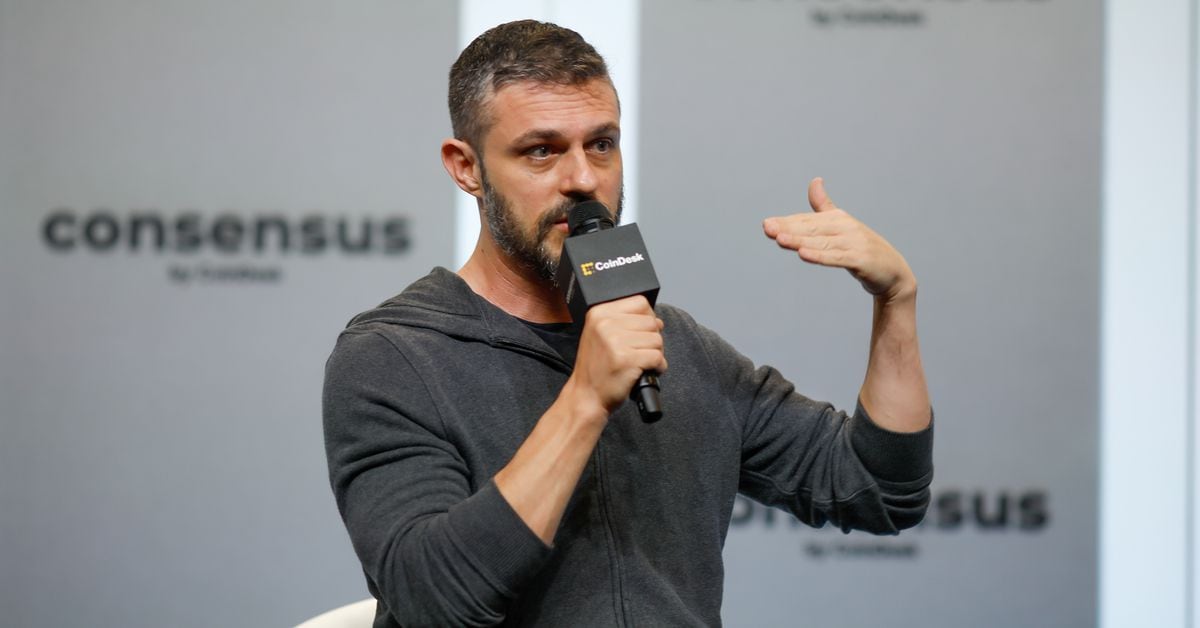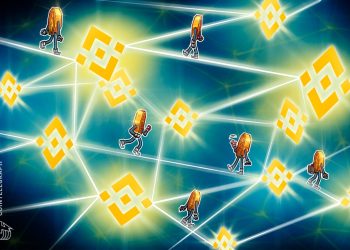Casey Rodarmor says he has no regrets about the two controversial protocols, Ordinals and Runes, he launched on Bitcoin, which have made the original and most valuable blockchain a lot more like other, alternative chains.
There are essentially two guiding principles that Rodarmor has followed since bursting on the scene as one of Bitcoin’s most influential coders: Bitcoin should remain secure and so should its applications.
This is an excerpt from The Node newsletter, a daily roundup of the most pivotal crypto news on CoinDesk and beyond. You can subscribe to get the full newsletter here.
Note: The views expressed in this column are those of the author and do not necessarily reflect those of CoinDesk, Inc. or its owners and affiliates.
The “only thing that’s interesting about any sort of blockchain is the extent to which it can resist the government,” Rodarmor said on stage at Consensus 2024, in Austin, Texas, on Friday. “I view bitcoin’s (BTC) primary role as being hard money that individuals can adopt to transact and do all the things that they want to do with [it].”
Although Ordinals and Runes have generated about as much antipathy as enthusiasm among bitcoiners, Rodarmor’s protocols are proof positive that it’s possible to build things using Bitcoin that are as difficult to stop as a bitcoin transaction is to censor. In so doing, he has kicked off a new era – sometimes called Bitcoin Season Two – celebrating the fact that Bitcoin can be used almost however you want.
That said, Rodarmor readily acknowledged that Runes, his latest project, launched to coincide with the Bitcoin halving event on April 19, 2024, is decidedly less important than Bitcoin itself. He referred to the protocol, which enables the creation of tradable assets on Bitcoin similar to tokens on Ethereum, as a “sideshow.”
See also: Casey Rodarmor: The Bitcoin Artist | Most Influential 2023
“They are not as important as Bitcoin in this vein,” he said. “They provide the sort of niche, fun, degenerate thing” that crypto traders seem to desire. And that’s where the value of Runes and Ordinals comes from: by creating an outlet for on-chain gambling, they also help to bolster Bitcoin’s once-lagging fee economy.
In fact, the historic halving event earned the highest fees ever paid for a bitcoin block, at just over $2.4 million in BTC. Transaction fees remained elevated through much of April, but have since normalized to around $3 on average, according to bitinfocharts. But that is higher than the sub-dollar prices seen through much of 2022 and 2023.
“I for sure would not have done anything that I thought was bad for Bitcoin,” Rodamor said, explaining that due to the hard cap on the amount of bitcoins that will eventually enter into circulation via a mining subsidy, the network’s security will ultimately have to be paid for by transaction fees. “I would prefer those sources are here sooner rather than later.”
Rodarmor added that his work is really part of a continuum of people building all types of tools, from chain swaps to different ways to configure transactions, that have the possibility of attracting “normal users.” However, these tools are only ultimately useful to Bitcoin if they “contribute to the security and robustness” of the network.
“I think this gives people a preview of the destiny of Bitcoin,” he said. “They can see what it’s like with very high fees.”
See also: Why Christie’s First Bitcoin Inscriptions Auction Matters | The Node
All of this is important especially in light of Bitcoin’s “anarchic” governance structure – which, similar to Churchill’s famous quote about democracy, is “dysfunctional” but likely the “absolute best form of governance that Bitcoin could have,” Rodarmor said. Because no one individual or entity is directly responsible for Bitcoin, the only shot of developing a sustainable fee economy is by shipping actual products.
What “makes people uncomfortable about Bitcoin governance is that there is no formal governance,” Rodarmor said. If there were, it’s likely that protocols like Runes and Ordinals wouldn’t have been permitted. Several key figures in Bitcoin circles, including longtime developer Luke Dashjr, have been highly critical of Rodarmor’s projects, and have even moved to censor these types of transactions.
“I personally would rather drink poison and jump off a bridge than try to participate in the Bitcoin Twitter/GitHub consensus process,” Rodarmor said. He noted that even though Ordinals and Runes have been an unexpected success story, he didn’t receive a grant or any funding to develop the protocols. “I’m an enthusiast,” he added.

![[Action required] Your RSS.app Trial has Expired.](https://8v.com/info/wp-content/uploads/2026/01/rss-app-cfAqZL-75x75.png)









![[Action required] Your RSS.app Trial has Expired.](https://8v.com/info/wp-content/uploads/2026/01/rss-app-cfAqZL-350x250.png)









